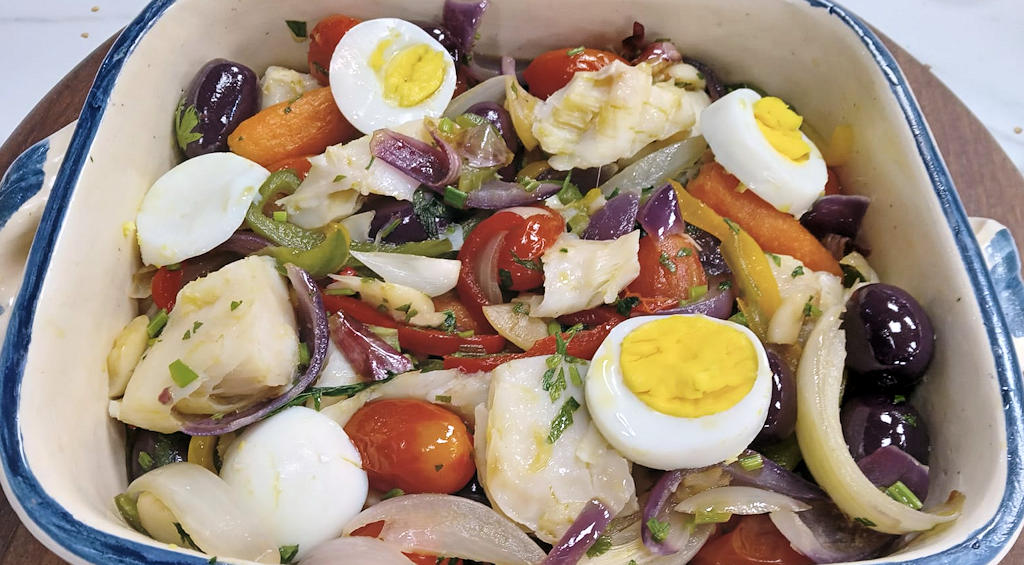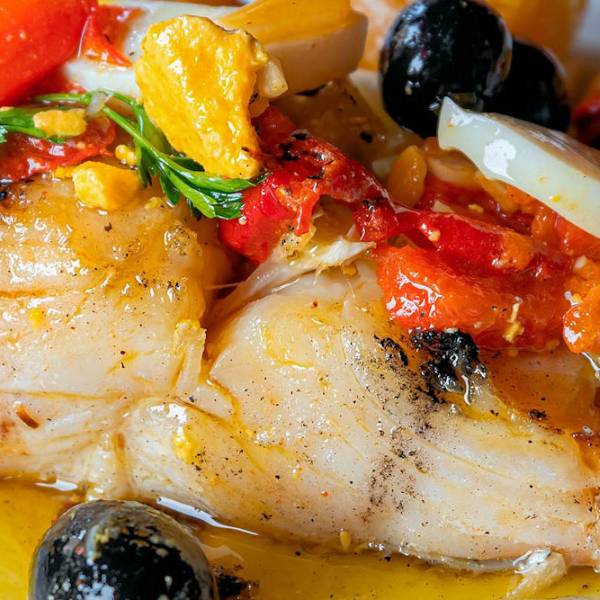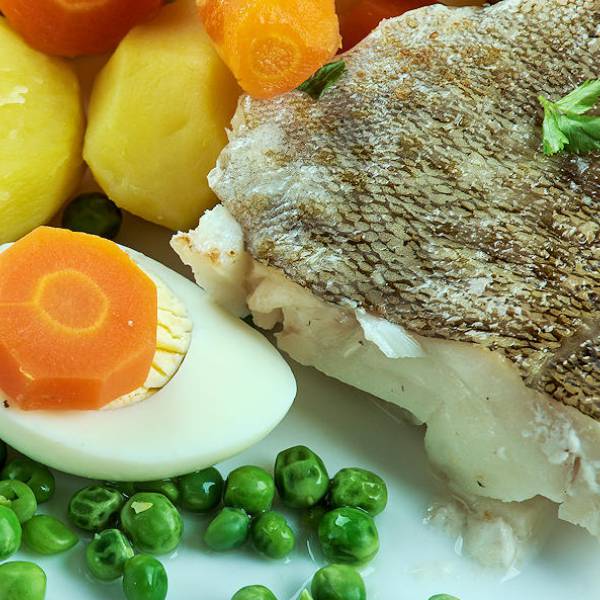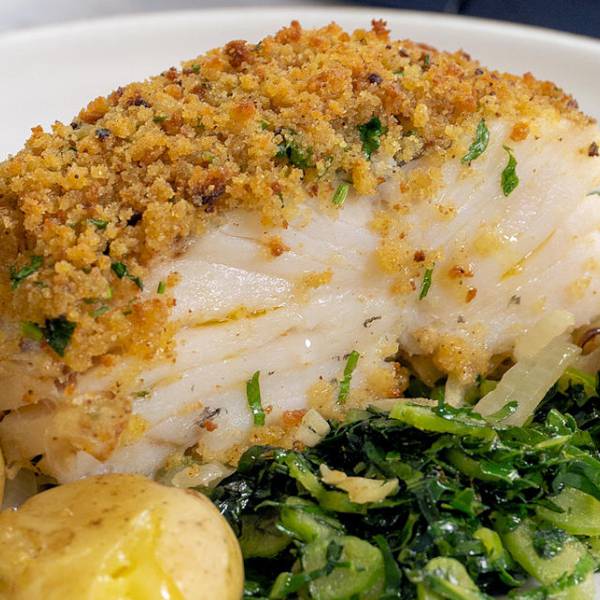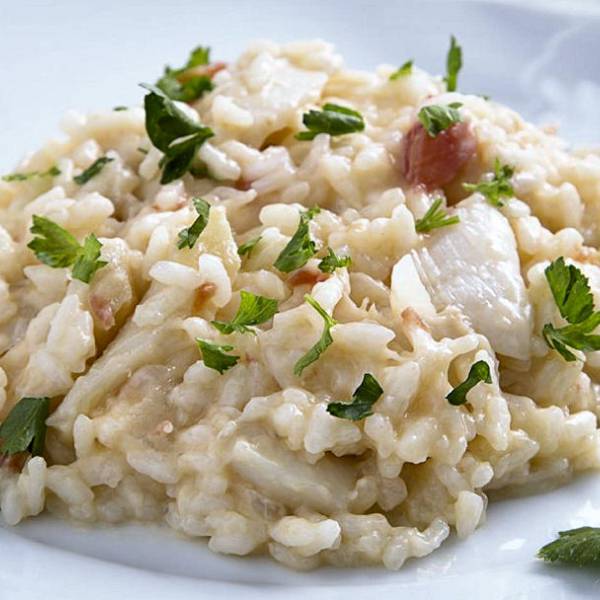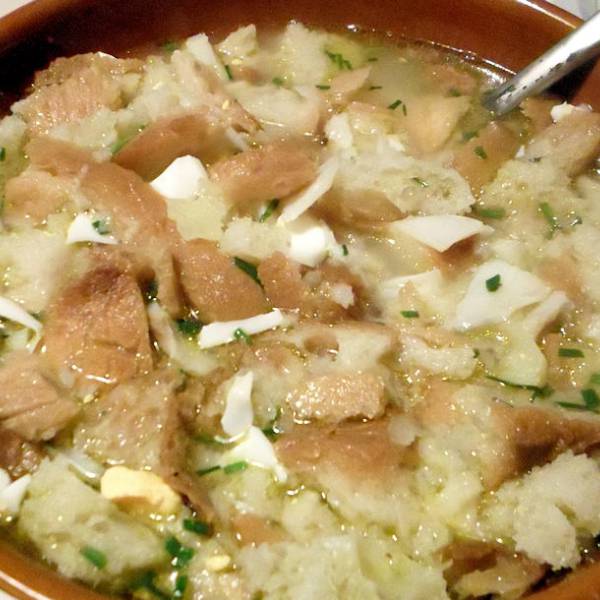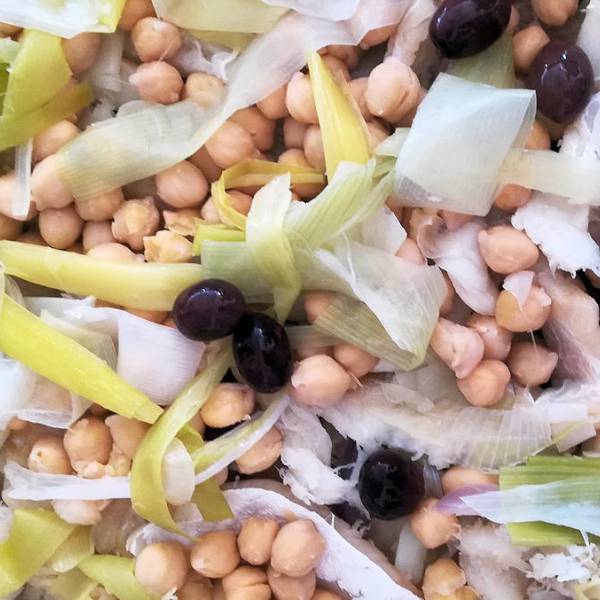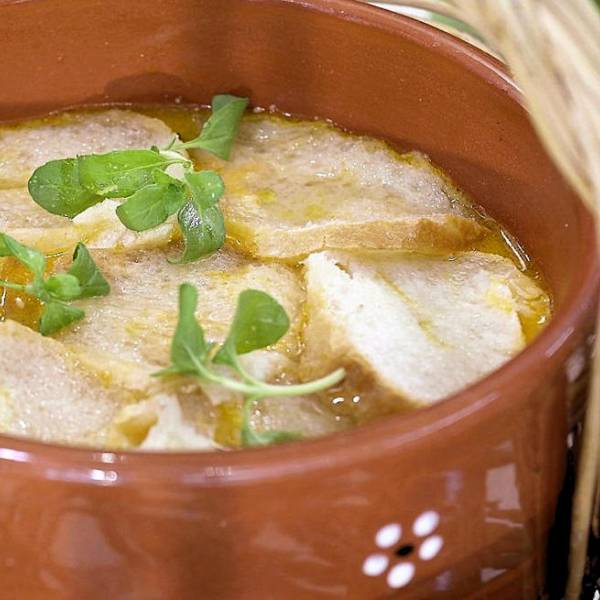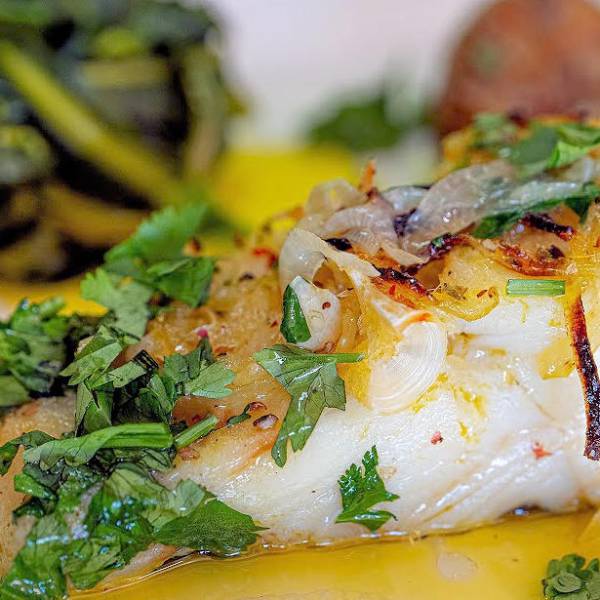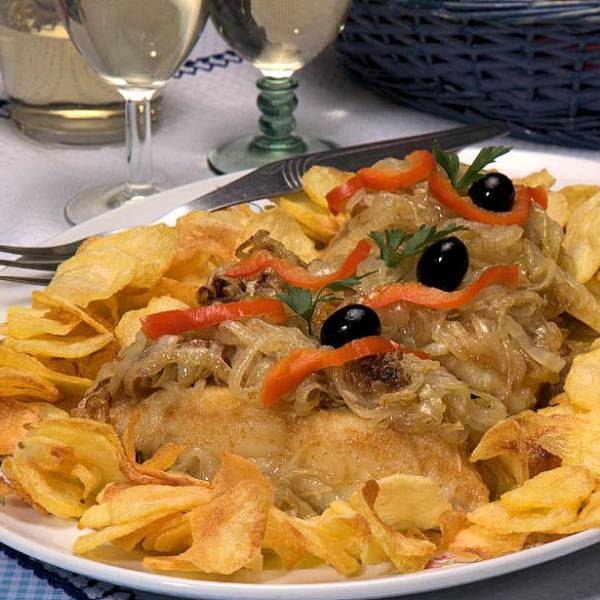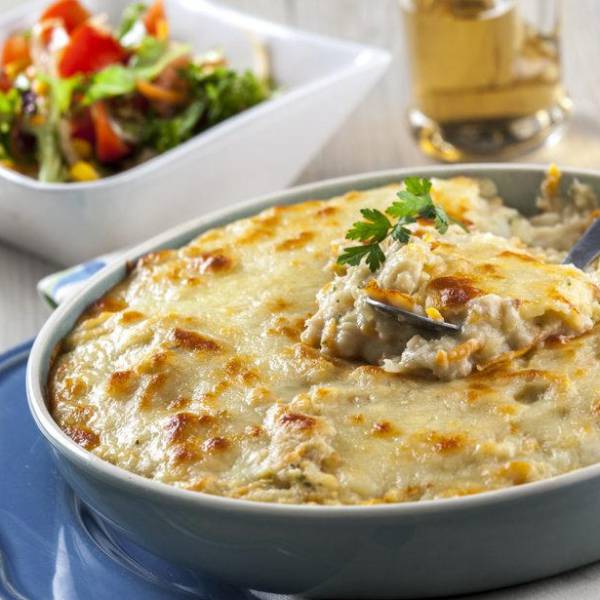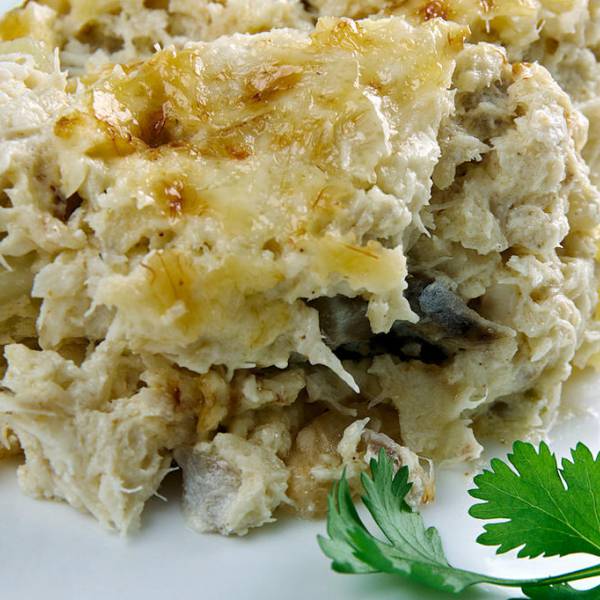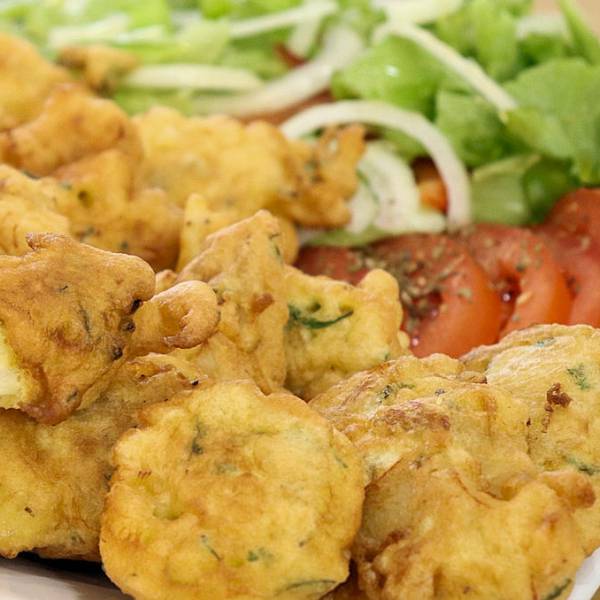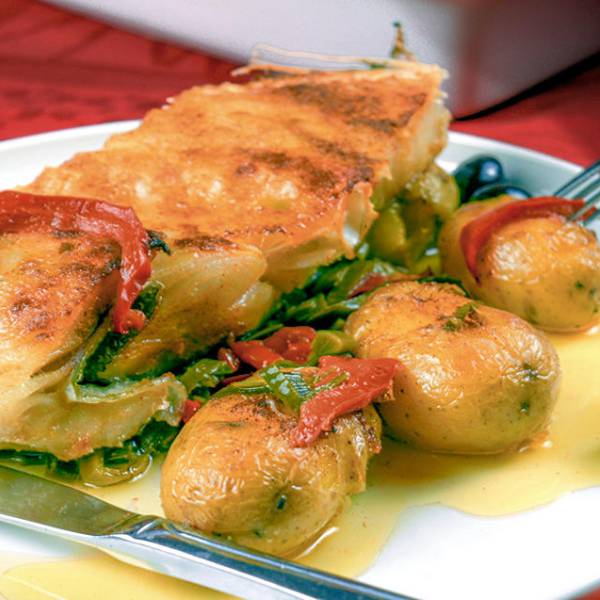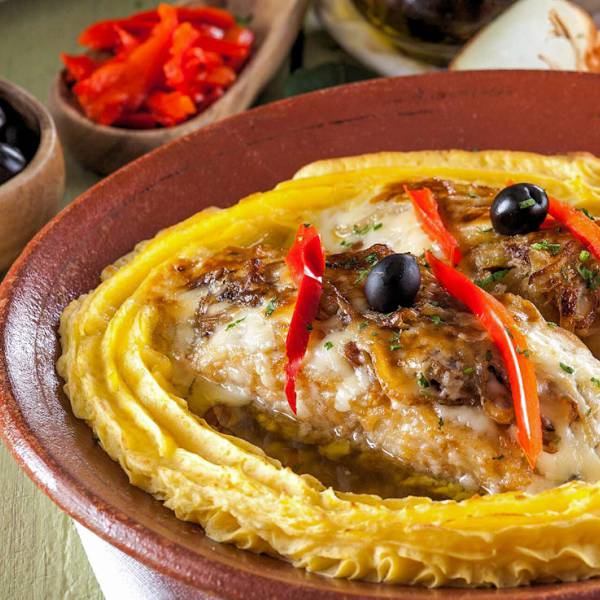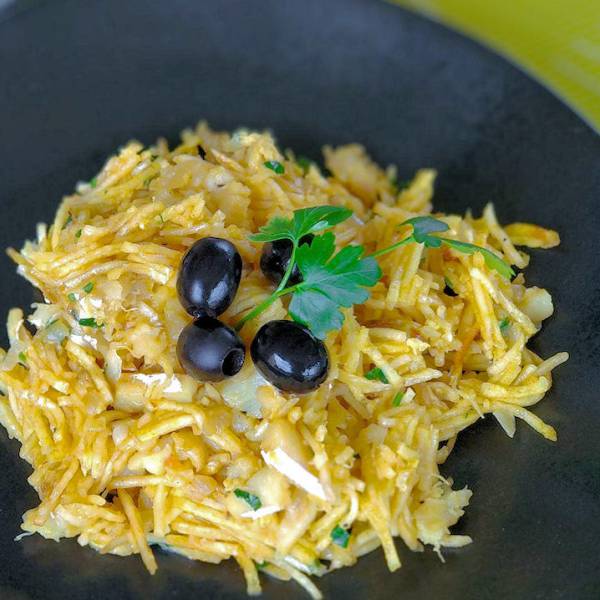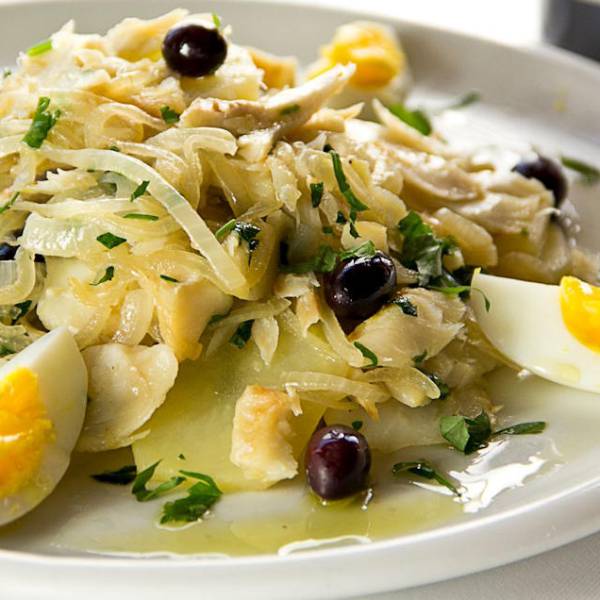Salted cod's popularity grew exponentially, earning its place as a national dish in Portugal. Its consumption transcended social classes and regions, giving rise to numerous recipes prepared according to local tastes and available ingredients. Among the countless salted cod recipes, Bacalhoada à Portuguesa emerged as one of the most cherished and renowned.
The preparation of Bacalhoada à Portuguesa requires only a handful of ingredients, but it demands meticulous care and patience. The journey begins by desalting the cod, an artful process involving several days of soaking and frequent water changes. Through this method, the fish sheds its excessive saltiness, regains moisture, and acquires a tender and flaky texture.
Once desalted, the cod and eggs are gently boiled until perfectly cooked. The cod is then deboned and stripped of its skin, while the eggs are peeled and sliced. Concurrently, potatoes are peeled and boiled until tender yet firm. Onions, peppers, and tomatoes are washed and sliced, olives are pitted, and parsley is finely chopped. Some culinary enthusiasts may opt to enhance the flavors further by adding garlic, bay leaves, or other herbs and spices.
The culmination of the preparation process arrives with the assembly of the dish in a large baking dish or clay pot. The layers are meticulously arranged in the following sequence: potatoes, cod, peppers, tomatoes, onions, and olives. Each layer receives a generous seasoning of salt, pepper, and olive oil. Some aficionados choose to impart a touch of acidity by sprinkling vinegar or white wine. The dish is then gently placed in the oven, where it transforms into a glorious golden creation, bubbling with anticipation.
Lisbon.vip Recommends
Bacalhoada à Portuguesa encompasses more than just a sumptuous meal; it is a testament to Portugal's cultural and historical tapestry. It embodies the significance of salted cod in the country's economy, cuisine, and maritime legacy. Furthermore, it reflects the Portuguese people's resourcefulness and ingenuity, transforming simple ingredients into a diverse and mouthwatering repertoire of dishes.
Beyond its culinary allure, Bacalhoada à Portuguesa unites people around the table, fostering connections and shared memories. Traditionally served on joyous occasions like Easter Sunday and Christmas Eve, it brings families together, celebrating cherished faith and time-honored traditions. This dish evokes a sense of nostalgia and pride, particularly for the Portuguese diaspora and those with ancestral ties to the country.
Bacalhoada à Portuguesa encapsulates the very essence of Portugal's identity and values—simplicity, generosity, diversity, and resilience. It pays homage to the past, present, and future of the nation, encapsulating its rich heritage within each bite. This dish, with its robust flavors and cultural significance, deserves to be savored and appreciated by all who harbor a love for exceptional cuisine. Bacalhoada à Portuguesa stands as a testament to Portugal's enduring culinary legacy, inviting all to embark on a gastronomic journey that intertwines flavors, history, and shared moments of pure delight.


